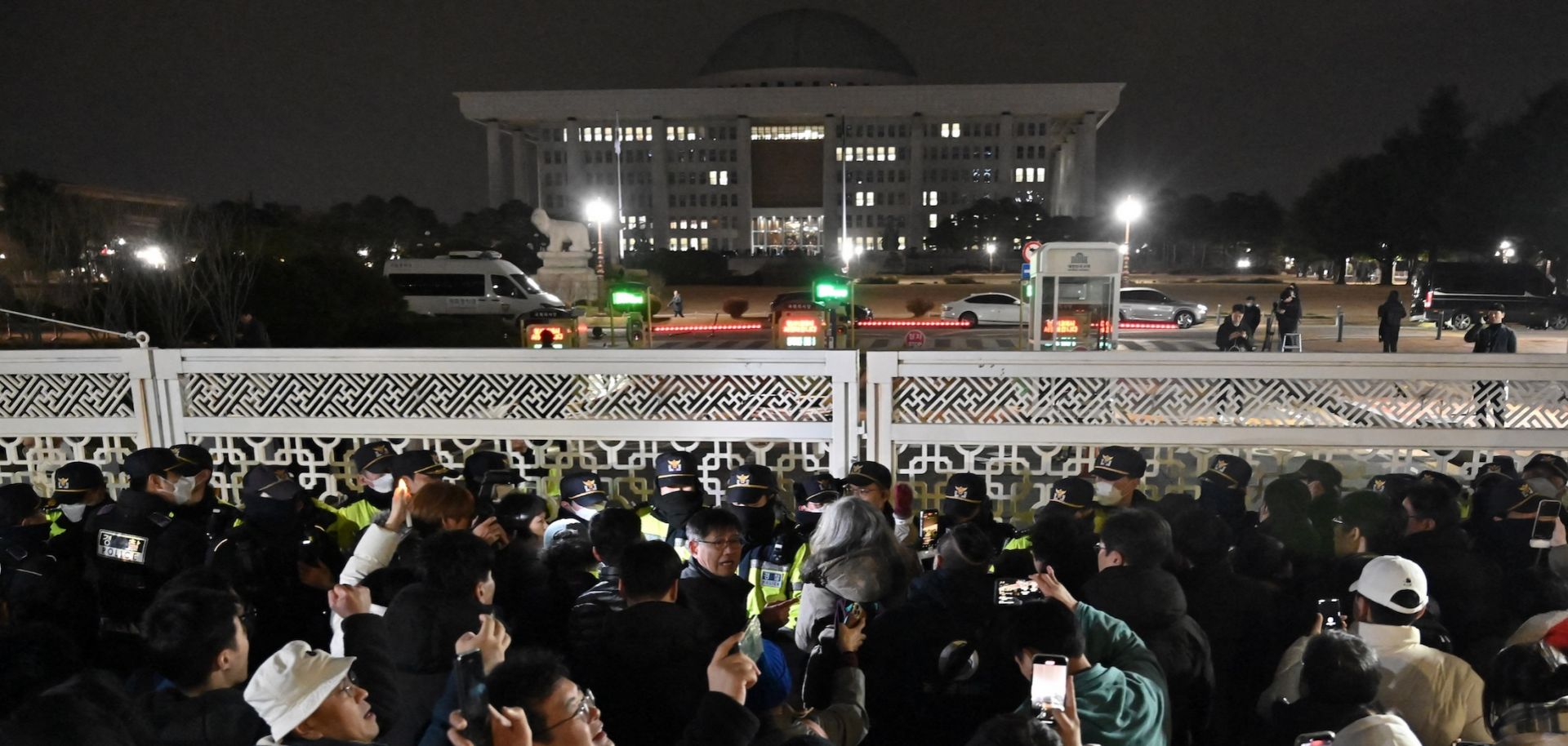In South Korea, the president's surprise declaration of martial law followed by a quick reversal will likely permanently stall his agenda and eventually lead to his resignation or impeachment, putting into question defense cooperation with the United States and Japan given the opposition's skepticism of these initiatives. In the early morning hours of Dec. 4, South Korean President Yoon Suk Yeol announced that he would lift martial law, approximately six hours after he declared the emergency measure in a televised address late on Dec. 3. In his statement, Yoon accused the opposition Democratic Party of Korea, or DPK, which controls the National Assembly, of conducting anti-state activities, harboring pro-North Korean sympathies and instigating legislative paralysis. The declaration temporarily transferred significant administrative and judicial powers to the military, suspended certain civil liberties and led to the deployment of security forces to enforce order, particularly around the National Assembly building which police...

